Involve citizens at each stage of the development of Cigéo
The Cigéo project is a project engaging the society over the long term. For this reason, it was designed to be progressive and adaptable. Throughout its life, decisions will be made with citizens to assess and guide its development. This is called the "governance" of the project. This extremely important topic will be discussed with the public from the end of 2020.
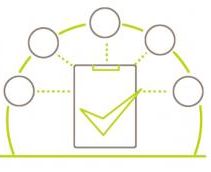
Designed to protect people and the environment for hundreds of thousands of years, Cigéo, the geological disposal facility for the most dangerous radioactive waste, is a project with exceptional characteristics. Its construction and operation will take place over more than 100 years and several generations will follow one another to ensure its operation and development.
It is therefore essential to guarantee these future generations the possibility of re-examining and reorienting, if they deem it necessary, the decisions taken by our generation.
A reversibility issue
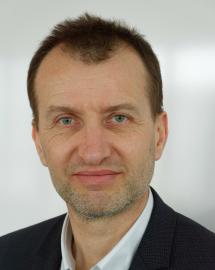
of the Cigéo project
This is what is called the reversibility of the project. Acted by Parliament in June 2006 and then clarified in 2016, it offers successive generations the possibility of going back, continuing as planned, or modifying the project throughout its duration of operation.
"While it is our responsibility to move forward towards a sustainable management solution for this waste, it is not because we decide to initiate Cigeo now that everything is set in stone", explains Pascal Leverd, deputy director of the Cigeo project. "The project will progress step by step based on decisions that will be periodically evaluated, discussed again, and confirmed or invalidated. "
Construction, commissioning, reception and storage of the first package, subsequent development of the repository, final closure: so many major stages, which, to be taken, will be the subject of decisions taken together with the public within the framework of Cigeo's governance. .
"The governance of a project is not about 'managing
' it, in the sense of directing it or having power, nor is it the decision itself. Rather, it is the way in which decisions concerning this project are prepared, discussed, taken and followed up”summarizes Pascal Leverd.

Include civil society
Who to involve in these decisions? At what moment ? How ? Under what conditions and with what means? These are all questions that will be discussed with the public during the consultation which will begin at the end of the year. "The governance of the project will start as soon as the Cigeo creation authorization decree is issued and will continue throughout its implementation. The pilot industrial phase (see below) will in fact constitute a very important moment in this governance, almost an apprenticeship ”, explains Pascal Leverd.
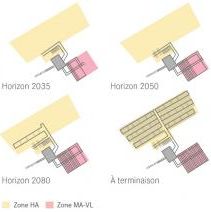
A methodology to be found, therefore, but which is based on the transparency of information, the relevance and quality of this information, the recognition of everyone's knowledge and contribution, the largest people's participation ... and continuity: " It is essential to establish a dynamic of public participation that will not run out of steam over time. Good decisions concerning the project will result in particular from ta well-working governance. "
A main part of the reversibility principle, Cigeo's governance fulfills Andra's will: "Because these decisions linked to the Cigéo project will commit the entire company for a very long time, they cannot be the result of a dialogue between Andra and the State. They must be the result of collective work. "A requirement for public participation which also found strong resonance during the 2019 public debate on the national radioactive materials and waste management plan (PNGMDR) and in the decisions taken in February 2020 by the Ministry of Ecological Transition and the Nuclear Safety Authority following this debate.
COLLECTIVELY DEVELOPING CIGÉO'S MASTER OPERATING PLAN
The consultation on Cigeo's governance aims to co-construct with the actors of the project and the public, the way in which citizens can be involved in major decisions concerning its progress. It will open at the end of 2020 and will continue throughout 2021 through workshops, online information meetings, a citizens' conference, etc.
The governance arrangements discussed during this consultation will feed into a key document of the Cigeo project: the master operating plan (PDE). This document describes Cigeo's so-called “reference” process, its major milestones, as well as the associated governance plan. A first version was produced in 2016 and the next will be submitted for the project creation authorization request. The PDE will then be updated and concerted every 5 years, to track the decisions taken throughout the duration of Cigeo's operation.
The industrial pilot phase: a key stage
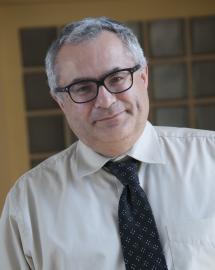
If the Cigéo project is authorized, it will start with a pilot industrial phase. Objective: to test in real conditions, full scale, the technical and organizational functionalities of Cigeo (disposal process, disposal monitoring, environmental monitoring, retrievability of packages, appropriation of the industrial object for all stakeholders, relations with stakeholders, etc.).
"The first phase of the progressive development of the Cigéo project, the industrial pilot phase will also be progressive," explains Frédéric Plas, R&D director at Andra. "It will be a succession of stages, tests, verifications and authorizations to ramp up and collectively appropriate the industrial object that is Cigeo. It could in particular take place in two parts with operations in “inactive”, that is to say without radioactive waste, then “in active”, that is to say with certain radioactive waste packages, subject to authorization from ASN. "
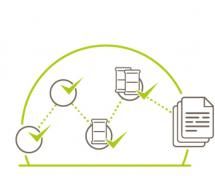
Depending on the pace of implementation, start-up and acquisition of experience feedback, and following discussions with stakeholders, it could last between 15 and 25 years. Envisaged over ten years until then, Andra proposes that the duration of the pilot industrial phase be extended in order to cover the construction of Cigéo and the first years of operation, making it possible in particular to collect data on the site (geological , environmental and industrial). This proposal allows the collective governance of the project to be put into practice as soon as possible.
The results of the pilot industrial phase will be detailed by Andra in a report, assessed by the National Assessment Commission, the Nuclear Safety Authority and the local authorities, each one publishing its comments and remarks. The whole will be evaluated by the Parliamentary Office for the Evaluation of Scientific and Technological Choices, which will report on its work to the National Assembly and the Senate. A law must then allow the further development of the Cigeo project.

